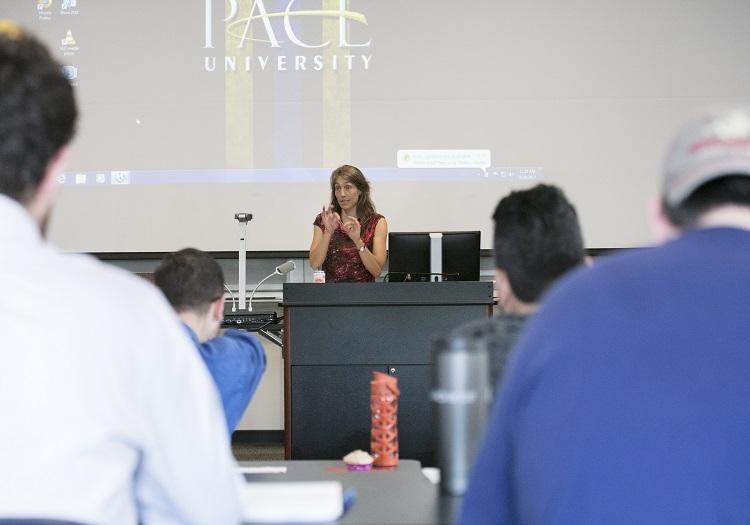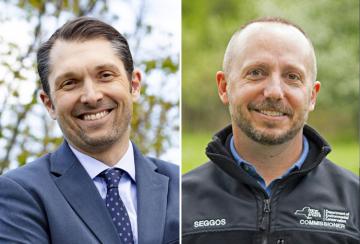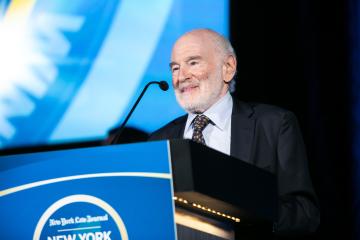Haub Law's Global Center for Environmental Law Submits Nine Motions to IUCN World Conservation Congress

THE ELISABETH HAUB SCHOOL OF LAW’S
GLOBAL CENTER FOR ENVIRONMENTAL LAW SUBMITS NINE MOTIONS FOR CONSIDERATION TO THE IUCN WORLD CONSERVATION CONGRESS
WHITE PLAINS, NY – The Elisabeth Haub School of Law at Pace University’s Global Center for Environmental Law further cements its global impact by submitting nine motions for consideration at the International Union for the Conservation of Nature (IUCN) World Conservation Conference. Haub Law is one of only two law schools in the United States that is a member of the IUCN and therefore has full voting rights on motions submitted to the conference. Decisions made at the conference have wide-reaching implications for environmental law and policy around the globe. The 2020 World Conservation Conference will be held in Marseille, France in June.
“Our environmental law program has a long history of preparing students to act both locally and globally,” said Haub Distinguished Professor of Environmental Law and Interim Associate Dean & Executive Director of the Environmental Law Program Katy Kuh. “We are proud to present these motions on the international stage and work with the IUCN to develop solutions to the global environmental challenges we are facing.”
The Center for Global Environmental Studies co-sponsored more than twenty motions with other IUCN Members. Faculty and students solely authored motions that include the following:
- Promoting sustainable and ethical mining practices in Africa (Anxhela Mile);
- Deploying emergent technologies for nature conservation (Prof. Nicholas A. Robinson);
- Rediscovering care of Mother Earth through denouncing the “Doctrine of Discovery” (Prof. Nicholas A. Robinson);
- Asian-Pacific Regional Agreement on transboundary environmental impact assessment (Tarini Mehta);
- Restoring a peaceful and quiet ocean (Rose L. Kautoke);
- A paramount call to save the vaquita porpoise (Tala DiBenedetto);
- Protecting Biodiversity by Implementing the UN Declaration on Peasants’ Rights (Prof. Smita Narula and Nicholas Sioufas);
- Adding Mitigation of Energy Causes of Climate Change to the Programme 2021-24 (Prof. Richard Ottinger);
- And, Promoting Biodiversity Preservation through Energy Transformation Measures (Prof. Richard Ottinger).
Beginning in October, students will have to the opportunity to negotiate for the motions in preparation for voting this June during the Congress.
Held once every four years, the IUCN World Conservation Congress aims to improve how we manage our natural environment for human, social and economic development. It brings together several thousand leaders and decision-makers from government, civil society, indigenous peoples, business, and academia, with the goal of conserving the environment and harnessing solutions to global challenges.
###
About Elisabeth Haub School of Law at Pace University
Pace University’s Elisabeth Haub School of Law offers J.D. and Masters of Law degrees in both Environmental and International Law, as well as a Doctor of Juridical Science (SJD) in Environmental Law. The school, housed on the University’s campus in White Plains, NY, opened its doors in 1976 and has over 8,500 alumni around the world. The school maintains a unique philosophy and approach to legal education that strikes an important balance between practice and theory. For more information visit http://law.pace.edu



